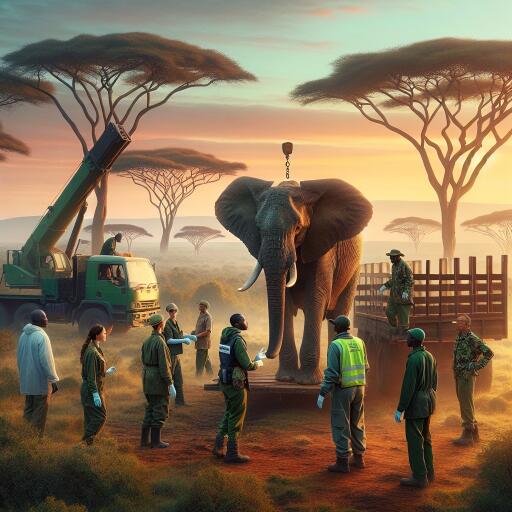
Kenya Begins Translocation Of Elephants To Boost Human-Wildlife Coexistence
In an ambitious new chapter for environmental conservation, the Kenya Wildlife Service (KWS) has initiated the transfer of elephants as part of efforts to enhance coexistence between humans and wildlife while preserving vital habitats. This pivotal movement involves relocating around 50 elephants from Mwea National Reserve to the expansive Aberdare National Park, both situated in central Kenya.
This translocation aligns with the National Elephant Action Plan for 2023-2032, which aims for sustainable elephant populations, reducing conflicts between humans and elephants, and restoring compromised habitats. In a recent statement, KWS highlighted the harmony of this project with its newly unveiled Strategic Plan for 2024-2028, embracing modern conservation methodologies, strengthening community partnerships, and leveraging technological advancements.
Faced with a growing elephant demographic that has climbed from 49 in 1979 to 156 today, Mwea National Reserve has experienced significant pressures on its resources, resulting in damage to property and exacerbated human-elephant tensions. The relocation exercise is crucial for safeguarding the well-being of both elephants and the rural communities who predominantly rely on farming for their livelihood.
Meanwhile, an increase in the elephant population within Aberdare National Park promises to bolster ecological equilibrium, spur ecotourism, and generate economic uplift for neighboring communities. These relocations are poised to cultivate genetic diversity within the elephant populations, offering much-needed protection to vulnerable species and fostering resilient ecosystems, observed the Secretary of the Ministry of Tourism and Wildlife.
Kenya’s engagement in international conservation efforts reflects its commitment to tackle issues like poaching, shrinking habitats, and the impacts of climate change affecting the majestic land mammals. This translocation initiative represents a proactive strategy directed at combating habitat degradation and human-wildlife conflicts. Moreover, it aims to enhance the socio-economic development of communities located close to wildlife territories.





Leave a Reply